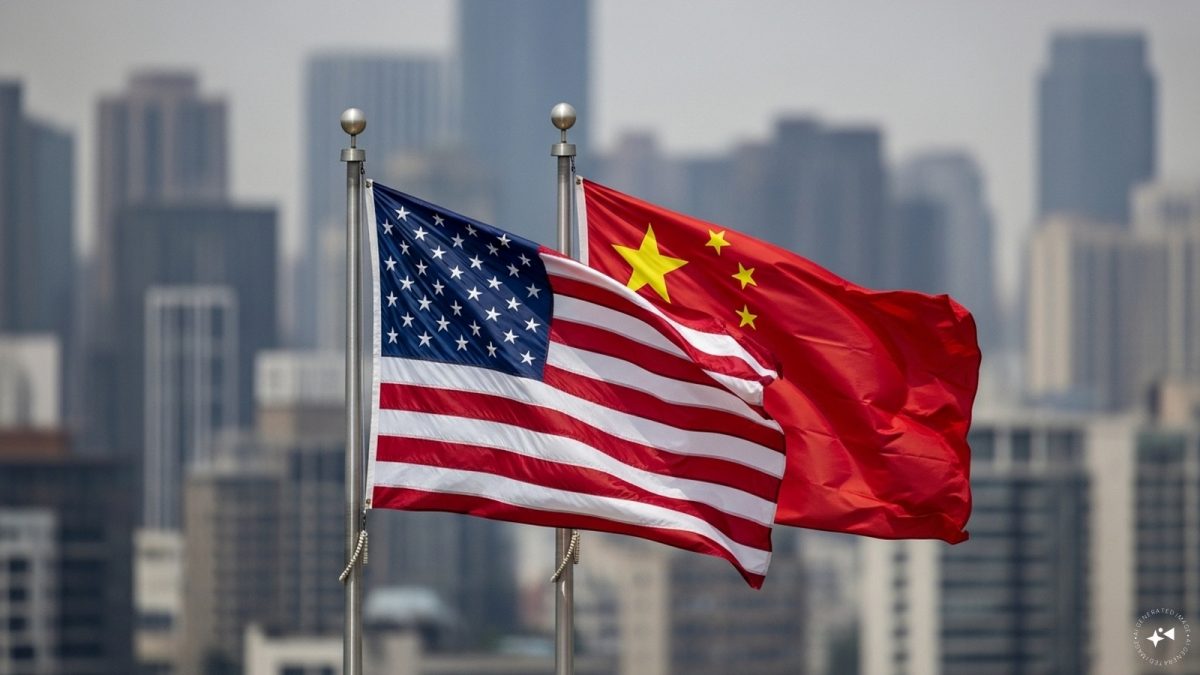US and Chinese officials met in Madrid to address trade tensions, TikTok divestiture, tariffs, rare-earth minerals and chip disputes, as Trump maintains tariffs and Xi Jinping may meet Trump soon.
US and Chinese officials resumed negotiations on Sunday in Madrid, addressing strained trade relations, the looming divestiture of Chinese short-video app TikTok and Washington’s pressure on allies to impose tariffs on China over its purchases of Russian oil.
US Treasury Secretary Scott Bessent and US Trade Representative Jamieson Greer met Chinese Vice Premier He Lifeng and top trade negotiator Li Chenggang at the baroque Palacio de Santa Cruz, which houses Spain’s foreign ministry.
The talks mark the fourth meeting in four months in European cities aimed at preventing a collapse of the U.S.-China trade relationship under President Donald Trump’s tariffs. The delegations last met in Stockholm in July where they agreed in principle to a 90-day extension of a trade truce that had sharply reduced triple-digit retaliatory tariffs on both sides and restarted the flow of rare-earth minerals from China to the United States.
President Trump has approved the continuation of current US tariff rates on Chinese goods, totalling roughly 55% until November 10.
The delegations last met in Stockholm in July where they agreed in principle to extend for 90 days a trade truce that sharply reduced triple-digit retaliatory tariffs on both sides and restarted the flow of rare-earth minerals from China to the United States.Trump has approved the extension of current U.S. tariff rates on Chinese goods, totaling about 55%, until November 10.
The trade war rocked the global economy earlier this year, but relations have stabilised after a series of temporary truces. The latest pause on US tariffs placed on imports from China is scheduled to expire in November, and officials from both countries are under pressure to prevent relations from backsliding, the New York Times reported.
Trump’s tariffs have added pressure on inflation, which remains elevated. The Federal Reserve is expected to cut interest rates this week, a move intended to encourage economic growth that can also boost inflation. Treasury Secretary Scott Bessent will lead the negotiations on behalf of the United States, and He Lifeng, the vice premier for economic policy, will lead the talks for China.
On Saturday, China announced that it was opening an investigation into exports of certain microchips that are made in the US. The day before, the US Commerce Department said it was adding Chinese chip companies to a trade blacklist. The moves are expected to put additional pressure on the talks.
The world’s two largest economies have been discussing further tariff reductions and the status of China’s restrictions on shipments of rare earth minerals and magnets critical to US manufacturers.
The Trump administration is also concerned that China has stopped buying American agricultural products, threatening the livelihood of soybean farmers.
Bessent has criticised China’s excess industrial capacity, describing its economy as unbalanced, and urged his Chinese counterparts to curb purchases of oil from Russia and Iran.
Trump and Chinese President Xi Jinping could meet next month at the Asia-Pacific Economic Cooperation forum in South Korea. Trump has also suggested that he may visit China at some point at Xi’s invitation.
China is relying on increased trade with other countries to offset a sharp decline in exports to the United States. China’s exports to the United States have dropped about 15 percent this year, but trade to Southeast Asia, Africa and other regions is booming. China is on pace to surpass last year’s record nearly USD 1 trillion trade surplus in 2025.
Despite the robust trade figures, there are signs that China’s domestic economy is feeling the pinch from the ongoing trade war. The Chinese government is discouraging companies from further investments in industries already suffering from overcapacity to prevent cutthroat price competition and ease concerns from trading partners that the deluge of inexpensive Chinese-made exports will decimate local manufacturing, New York Times reported.
With inputs from agencies
End of Article

)
